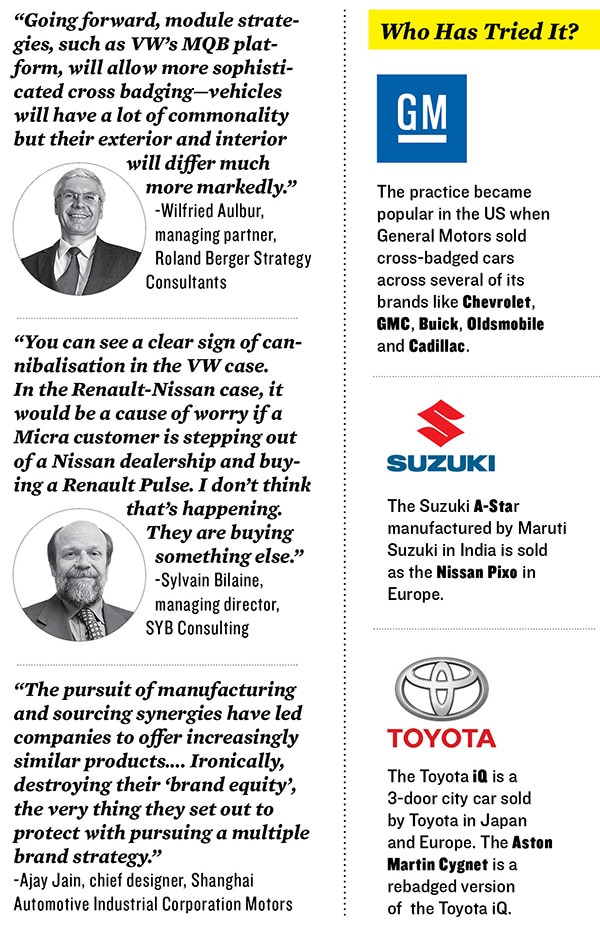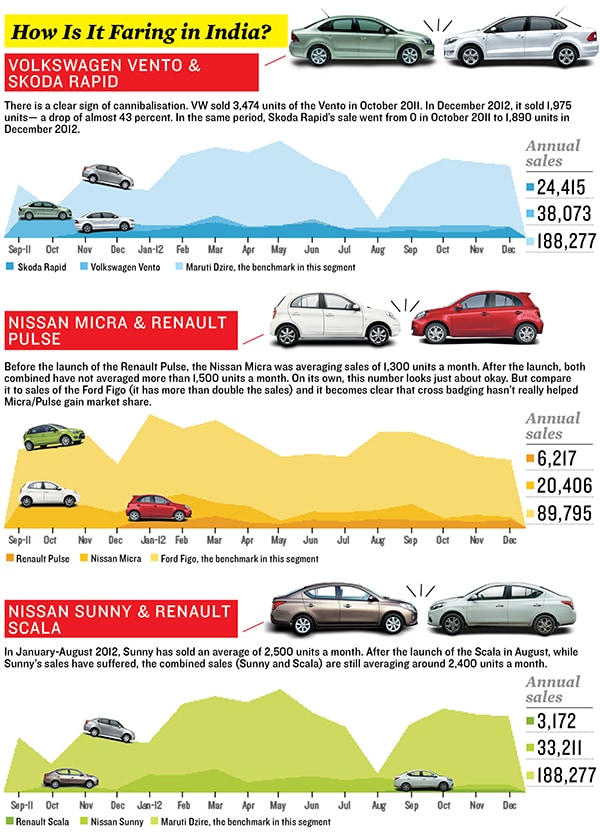
Is Cross-Badging Helping Auto Companies in India?
Cross badging of vehicles hasn’t caught on in Indian markets
The Duster has been a huge success for Renault in India. The car accounts for more than 70 percent of the company’s total sales. In 2013, though, Nissan, Renault’s alliance partner is due to launch a cross-badged version of the Duster under its own brand. It is another matter altogether that Renault-Nissan’s earlier attempt at selling cross-badged cars haven’t worked. Even the mighty Volkswagen group is struggling with it.
What is Cross Badging?
A car manufactured and sold by company X is also sold by company Y by making cosmetic changes. For instance a different logo, change in headlights, taillights, bumpers and so on.
The Rationale
Reduce Cost It costs $300-500 million to develop a new car. Makers with several brands (Volkswagen, Renault-Nissan alliance) can optimise this cost by selling the same vehicle across its various brands.
Complete the Bouquet
Feed vehicles in the network of a car company which a) does not have funds to develop a new car, or b) does not have a strong product portfolio or doesn’t have a particular vehicle in a segment.
Why Has the Indian Market Not Responded?
- The cross-badged cars sold in India look similar and have similar features.
- Cross badging works in markets where brand loyalty is high. The Indian buyer seeks value and will switch brands easily. Also, both Volkswagen and Renault-Nissan are still fairly new in India.


(This story appears in the 30 November, -0001 issue of Forbes India. To visit our Archives, click here.)




